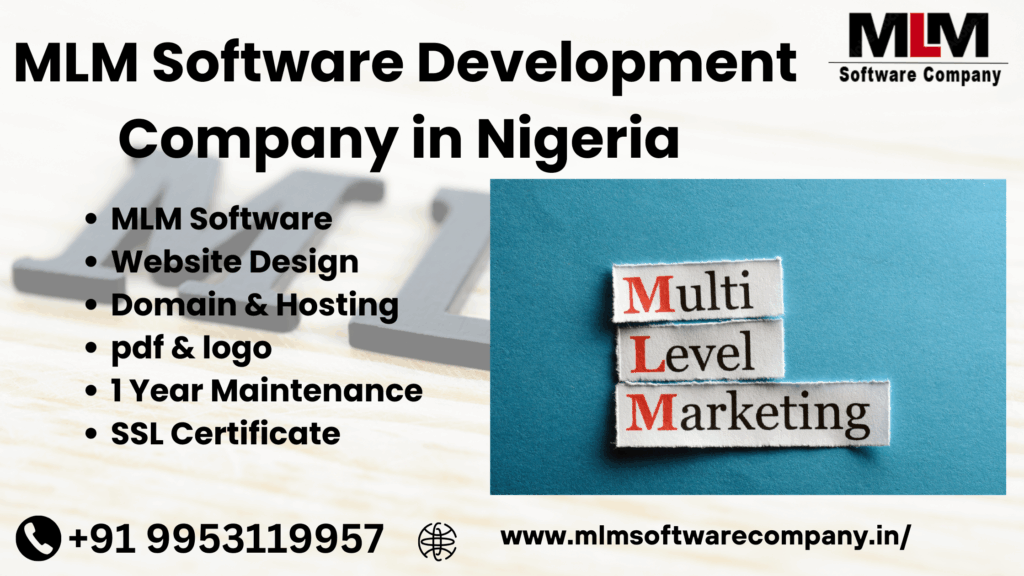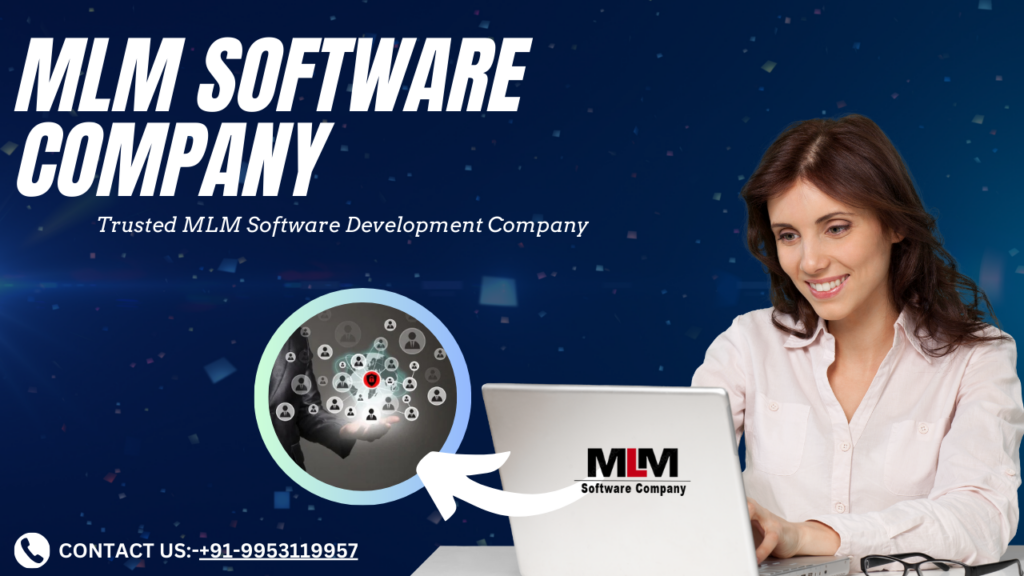Have you ever driven a high-powered car like a Ferrari? Chances are not many of us have had the opportunity. Most of us drive a family sedan, which is comfortable and safe. While not all of us can get our hands on a Ferrari, as an MLM business owner, you can experience speed and efficiency in something much closer to home—MLM software.
Getting MLM software for your business would be like fast-tracking your operations with speed, precision, and modern technology, much like a Ferrari. Whether you are a budding entrepreneur looking to launch an MLM business or own an already established MLM business looking for tech upgrades, this is the perfect guide for you.
Importance of Reliable MLM Software
MLM software is a specialized application designed to facilitate and manage the operations of MLM companies. It is a comprehensive platform that automates processes and helps make your MLM business efficient, productive, and scalable.
Reliable software is a cornerstone for the success and sustainability of your MLM business. It is a backbone for managing complex compensation plans and commission calculations and ensuring seamless communication between members. If you want to infuse your MLM business with the latest tech solutions, MLM software is your answer.
Overview of MLM Software Development
MLM software makes your life easier, but building one is no simple task. A successful MLM software development project involves careful planning, tech expertise, and a keen understanding of network marketing dynamics. It helps ensure the final product aligns seamlessly with your MLM business goals.
You have multiple options for obtaining this software. You can outsource it or decide to build it in-house. If you are planning to build one for your MLM business, you need to take a strategic approach, meticulous planning at each stage, expert technical expertise, and ongoing commitment.
Important Features and Functionalities of MLM Software
MLM software is crucial in managing and optimizing your network marketing business. It provides a robust framework to boost your MLM business with efficiency and precision. The software is tailored to meet the demands of the dynamic MLM industry while keeping your MLM business at the forefront.
1. User-Friendly Dashboard and Interface
An MLM software has a user-friendly dashboard to help navigate and explore its various features. A good software simplifies your business process, so it needs to be easy to use. With a simple dashboard and user-friendly interface, even a novice should be able to navigate without any trouble. This simplicity ensures that your business operations run smoothly and efficiently.
2. Multi-Level Commission Structure Management
This feature is equivalent to having a smart accountant for your MLM business. It keeps track of sales across different levels and ensures everyone gets paid accurately. It is a reliable tool to handle complex commission structures, contributing to a smoother and more transparent reward system in your MLM business.
3. Secure Payment Processing and E-Wallet Integration
This software feature ensures that your financial transactions are efficient and rock-solid in terms of security. Moreover, integrating it with E-wallet systems makes transactions swift and safe. This feature is essential to build trust among your network members and safeguard your finances from external threats.
4. Customizable Back Office and Genealogy Tree
The customizable back-office feature allows you to adjust back-office features to fit your MLM business needs. The Genealogy tree feature helps network members with a visual representation of the network structure. Both these features offer adaptability and clarity, empowering efficient management of your network.
5. Automated Reporting and Analytics Tools
Reporting and analytics features in the software gather and analyze data on sales, commissions, and team performances. These features work like a smart assistant that crunches numbers for you and helps you make the right decisions.
Understanding the Challenges of MLM Software Development
As an MLM business owner, you can come across many challenges while building this software. Overcoming these challenges is essential if you want to develop super-efficient and fast software. Moreover, not everybody has the tech expertise to face and overcome these challenges. You need a dedicated team of technical experts who are well-versed in MLM software development.
1. Complexity of Compensation Plans
Each MLM business has its own way of calculating commissions, bonuses, and various other incentives paid to all network members. Building software to handle these tasks requires intricate programming, posing technical challenges in implementing and maintaining complex algorithms.
2. Customization and Scalability
Customization requires a thorough analysis of the unique needs of your MLM business. Moreover, converting these needs into software features requires a high level of tech expertise. Also, basic MLM software may struggle to adapt quickly to changing needs, which can hinder its ability to grow with your business.
3. Integration with Third-Party Systems
Integrating third-party systems into your software requires a strategic and well-executed approach. Things like compatibility assessment, API documentation, data mapping and synchronization, vendor collaborations, and testing, and quality assurance can go wrong without high technical knowledge and expertise.
4. Security Concerns
Designing the software in-house introduces security challenges like safeguarding sensitive data, securing financial transactions, and addressing cyber threats. The challenge lies in addressing these multifaceted aspects comprehensively to build a secure and resilient software solution.
Understanding the Need for a Dedicated Team
With many things to consider while creating software in-house, you may find the task quite challenging without a dedicated team. A team of software professionals well-versed in the MLM business model is essential to developing efficient MLM software.
1. Overview of MLM Software Development Complexity
The process of MLM software development in Pennsylvania is quite like putting together a complex jigsaw puzzle. Many parts, like the intricate compensation plans, hierarchical structures, e-commerce integrations, and robust security measures, should work in tandem. The need for precise commission calculations, customization for your business, and scalability further complicates the process. Navigating these challenges requires a careful balance of technical expertise, mathematical modeling, and a deep understanding of network marketing dynamics.
2. Challenges You Will Face Without a Dedicated Team
MLM software development involves the intricate need for customization, integrations, and security challenges that require a dedicated team. Without such a team, you may face technical limitations, inadequate expertise, and struggle to adapt to evolving industry standards. You may also end up with sub-par software full of technical glitches and no security features to protect your sensitive data. On the contrary, having a professional team will ensure that robust, scalable, and secure software is created to meet the dynamic demands of your network marketing business.

The Role of Dedicated Team Members
Having a professional team will help make the software development process easier. This team will comprise individuals well-versed in different aspects of the process, like software development, and testing to managing the team. Each member has a specific role in the software development process. This will help streamline the process and achieve objectives faster.
An Ideal MLM Software Development Team Will Comprise:
1. MLM Software Developers
These developers are the key components of an MLM software development team. Their main function is programming a tailored software solution for you. Their expertise includes implementing diverse compensation plans, ensuring user-friendly interfaces, and seamless integration with external apps. The team must be proficient in various programming languages and stay updated regarding the latest industry trends. They should adapt to evolving business needs and communicate effectively with cross-functional teams to deliver a perfect software solution.
2. Project Managers
A Project manager acts as a glue to keep the entire team together. They coordinate tasks, manage resources, and ensure the software is ready on time. Their expertise includes project planning, risk management, and facilitating communication among team members. Project managers are adept at problem-solving, decision-making, and effective leadership. They help align the development team with business objectives to convert your requirements into efficient MLM software.
3. Business Analysts
Business Analysts are intermediaries that bridge the gap between business requirements and their technical solutions. They play a pivotal role in understanding the specific needs of your MLM business, analyzing the processes, and translating them into actionable insights for the development team. The expertise of Business Analysts lies in their ability to convert complex business processes into clear technical specifications. They will collaborate with you to gather and refine requirements and ensure the software aligns with your business goals.
4. Testing Team
The testing team is the final part of the MLM software development process. They play a vital role in ensuring quality and reliability. They will employ meticulous testing procedures to ensure that the final product meets industry standards, operates smoothly, and remains reliable under different conditions. The main aim of the software testing team is to test the software through meticulous testing procedures to identify and address potential operational issues and security threats. Their commitment to delivering thoroughly tested software is essential for its success.
The number of members in each specialty would depend on your budget and the scale of the project. It is essential to consider various other factors like the time frame and the infrastructure requirement before the start of the project. Also, conduct regular meet-ups with the team to ensure the project is on track and meeting your expectations. Once you have assembled the perfect team for your software development, you need to provide them with proper support throughout the project. After the project completion, a proper strategy should help in a smooth transition.
The Importance of Proper Transition and Support
Transition is when your software development team has successfully built reliable software based on your specifications. Smoothly shifting from your existing systems to the newly developed software involves careful planning. It helps minimize disruptions, transfer knowledge, and ensure a seamless integration of the new system into the business operations.
1. Mitigating Risks Associated with Employee Turnover
Conducting regular knowledge transfer sessions will help your team follow a proper transition plan. It also helps maintain workflow consistency and reduces the impact of personnel changes during the project development and the transition phase.
2. Ensuring the Continuity of Operations and Project Success
Implementing a robust procedure during the transition phase will help sustain the momentum and ensure the project is completed on time. Ensure that your team quickly identifies and resolves issues to minimize downtime.
3. Providing Ongoing Support and Maintenance for Long-Term Success
After the transition phase, a dedicated technical support team is crucial to address post-launch issues, ensure software reliability, and implement upgrades. Regular updates, proactive monitoring, and user training sessions are essential to optimize system performance and user adoption, contributing to long-term success.
The development of MLM software in Pennsylvania involves various phases and challenges. Each phase of the development process needs expert attention and input. From planning and designing to implementation and testing, the technical expertise of a dedicated team is essential to building efficient MLM software. They can help address challenges like compensation plan complexity, system integration, and security issues while ensuring smooth customization, scalability, and user experience.
Summary
Building MLM software in-house requires strategic planning and continuous support throughout the development phase. Your dedicated team can create tailored MLM software solutions for your business. Moreover, they can ensure efficient operations, secure transactions, and enhanced user experiences, driving the long-term success of your MLM business. The importance of having a team to address challenges cannot be understated. It allows you to build robust software and streamline your MLM business operations.




